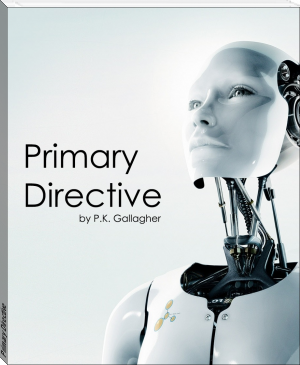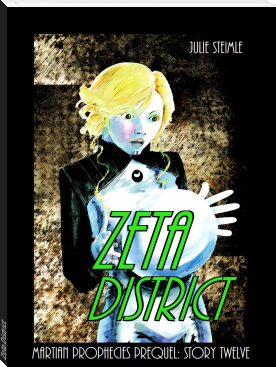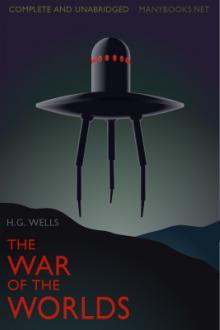Primary Directive, P. K. Gallagher [top 10 books of all time TXT] 📗

- Author: P. K. Gallagher
Book online «Primary Directive, P. K. Gallagher [top 10 books of all time TXT] 📗». Author P. K. Gallagher
I have only two dented cans of fruit to show for the blood splattering my chassis, and I know before I’ve tabulated the calorie count that it won’t be enough. I pause on the empty street. I could go back to the District, search one of the larger stores. There is less of a chance that their shelves have been picked clean, but certainly more marauders have settled there, marauders who would sacrifice great numbers for the generators keeping me functional.
I look up at the opaque clouds obscuring the sun-scorched sky. It is beginning to snow, the gray flakes drifting to the earth like cinders on the wind. The temperature is dropping. Carlisle will need my heat. If I don’t return soon, there is an 82.6 percent chance he will risk lighting a fire.
The bag in which I’ve put the cans brushes the ground as I consider my primary and secondary directives: see to his happiness, see to his needs. Carlisle needs food. He needs warmth. He wants me with him.
I start forward again.
Despite being an older model that would no doubt be obsolete by now had innovation not come to a standstill, I was once the pinnacle of artificial intelligence. Even still, I do not understand the prioritization of my directives. What does happiness—a cocktail of hormones and neurotransmitters—matter if his needs are unmet? No, I don't understand at all.
My journey to the ruin I've made Carlisle’s home doesn’t take long. It is just a few kilometers away, and while I’ve slowed down over the years, I am still faster than a human. Though I told him he should remain hidden, Carlisle is outside when I arrive, wind whipping at clothes that are little more than rags. I’ll need to find him more soon.
“Carlisle,” I call in my usual mellifluous monotone. He looks at me, wearing an expression I think is called bewildered.
“Meredith? Where have you been, woman?”
“I told you that you should stay inside.”
“Gah,” he says with a dismissive gesture. He lets me lead him inside without complaint, though. The maps on my hard drive say that this was once a bank called Wells Fargo. It serves us well now since few people are interested in money anymore and the safe is easily defended against those who are.
I get him settled on a bed of various bills, open a can of peaches, and hand it to him. He picks one out and plays with it a little as if unsure what to do with it.
“Eat,” I say. He obeys. I note the perspiration on his face despite the cold and his below-average BMI and am reminded of how paltry my offering is. I stand and go to the door, his suddenly anxious voice hard on my heels:
“You’re not leaving again, are you?”
I hesitate, then close the safe door and turn to him. “No, Carlisle.”
I go sit beside him, hypothesizing that the heat will tame the shivers wracking his too-thin frame. He relaxes visibly but has to be reminded to eat. He is not as compliant this time.
“You spend too much time away from the house, Mer. I’ve revolutionized modern robotics, every self-respecting man of science knows my name! You can afford to take a break every now and then.” He smiles and pats my hand, not seeming to notice how hard it is.
“I told you, didn’t I? Told you that no wife of mine would have to work all her life.”
I say nothing though he looks at me expectantly. I have no response — or at least none that don’t violate my primary directive. I don’t think he even remembers programming it, but I am bound all the same. I cannot remind him that his wife, Meredith Evans, died in one of the many terrorist attacks that decimated the country’s population and triggered the nuclear war that effectively ended the world last year on the eve of New Year’s Day 2020.
According to a cached Wikipedia article, one of the few resources updated before infrastructures crumbled, the attacks were carried out using his own creations — newer models of my own series. This is quite likely, but it makes Carlisle unhappy to hear me say so.
When it becomes clear that I won’t speak, he sighs. “You think I work too much. But you know it’s all for you, don’t you? Remember back when we could only afford the box wine, but we’d pour it in our glasses and pretend it was some expensive vintage blend with a name neither of us could pronounce? I loved those nights, but I promised you we’d drink the real thing one day.”
Pretending. I understand the concept, but its practice still seems pointless to me. The reality of a situation is just that—the reality. He wants me to say something, though, so I defer to my secondary directive.
“Eat.”
He huffs and slams the can down on the ground before lying down himself, facing away from me. “I’m not hungry.”
He is unhappy, but I am not sure what to do. “Please eat?” I try. He rolls over to look at me.
“I don’t care about the food, Mer,” he says. “I feel like I’m losing you. I love you. You know that, right?”
I have no way of knowing what Meredith Evans knew, but Carlisle wants something other than silence from me. But what more can I give him? I am acutely aware that I’m failing my directive.
For the first time, I examine my lack of understanding. There is much I do not understand about humans, but does that matter? It is not one of my directives. I am not programmed to understand Carlisle’s happiness, just to see to it. It is based on this logic that, for the first time ever, I pretend.
“I love you, too.”
It's said in my usual monotone, but he smiles all the same.
ImprintPublication Date: 08-01-2013
All Rights Reserved
Dedication:
For Cameron Askew-- Thanks for making sci-fi fly for the first time in my life





Comments (0)